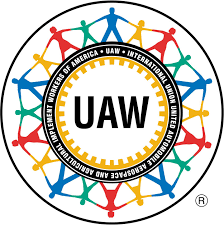It took Anthony Charbonier years of building construction elevators on unsafe jobs before he got a shot at joining a union. Now with a stable job as a school maintenance worker with the International Union of Elevator Constructors Local One, Charbonier has perspective on how much his working conditions improved as a union member.
Charbonier experienced many of the most notorious problems in the non-union construction trades. He worked on a range of construction projects both public and private. Safety standards were often not applied, wages sometimes withheld and speed was always the priority, he said.
“With the union, safety is a priority. Non-union is not like that. Everything is rushed to get it up faster. And safety and caution are pushed to the wind because the bottom line is about a dollar,” he said.
This is why the IUEC makes it a focus of its organizing muscle to bring non-union workers into its ranks.
“We really push to try to get the workers to have a desire to organize themselves and come as a shop but when that isn’t practical or doable for whatever reason, we’ll try to identify both talent and or spirited fighters,” said Mike Halpin, IUEC’s political action
Halpin said Charbonier was a valuable recruit because he had amassed a number of certifications over the years. Though Charbonier knew he was often getting a raw deal when he was working non-union, for years he said it wasn’t possible until he connected with an organizer to find the time and opportunity to take on an apprenticeship. He thanked Ironworkers District Council Organizer Eddie Jorge for helping to place him in the union.
“Getting into the union wasn’t easy. Bills have to be paid. You have to make a living,” he said.
The elevator union undertakes recruitment on an as-needed basis, meaning that it filters workers who express interest in an apprenticeship over a two-to-three year period.
Charbonier said the difference in working conditions is night and day. Even when Charbonier worked non-union jobs on public projects with prevailing wage regulation, he said was required to pay kickback fees. “They’ll tell you a price. It’s ‘If you wanna stay working here, this is what you gotta give back,’” he said.
Union involvement on a project is often enough to prevent some of the labor violations and working conditions that Charbonier described. But some of the biggest differences in working union jobs go beyond worksite culture to pension and benefits.
“When I was doing non-union, there was none of that. There were no retirement plans, there were no benefits. There was no medical, there was no paid sick leave,” he told LaborPress.
In his current job as a journeyman mechanic with IUEC Charbonier travels across the city’s public schools checking and fixing elevators for the city Division of School Facilities. He’s earned his keep through his training and said that his working environment has a sense of dignity.
“In the union, everybody’s a little more respectful. It’s more of comradery, brotherhood, even amongst different trades, you know, we’re respectful of each other in a sense,” he said.





